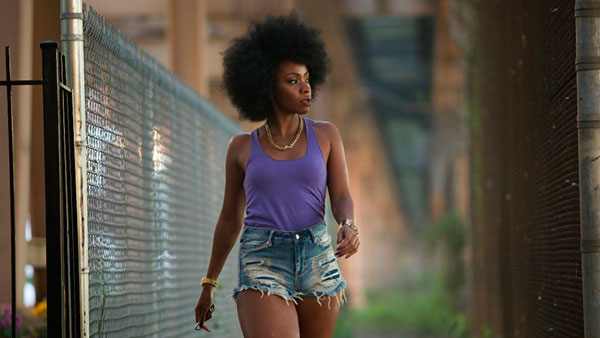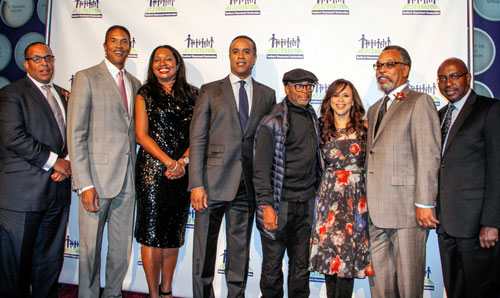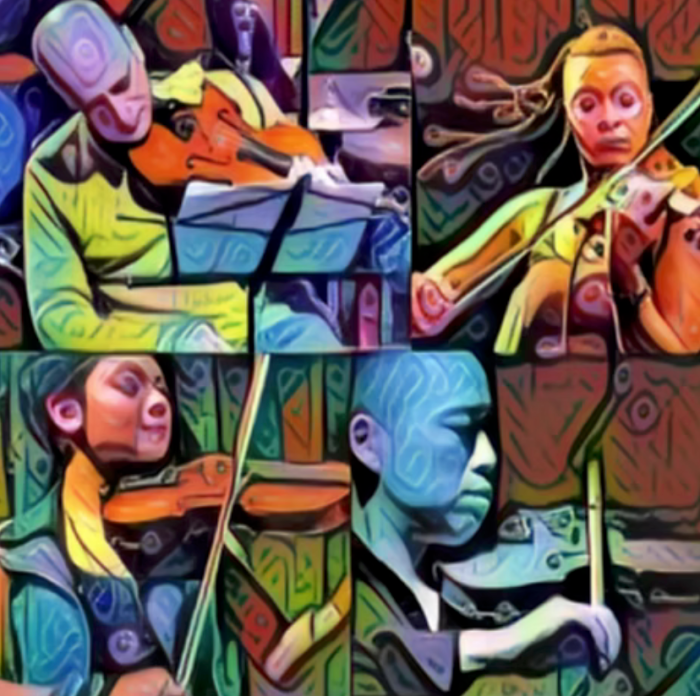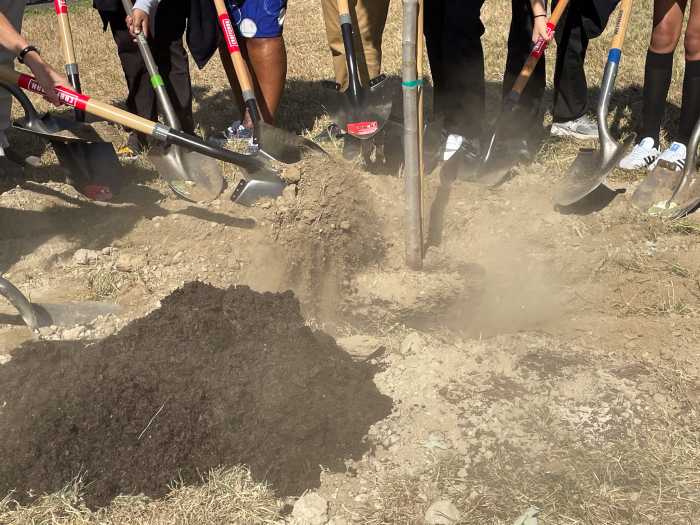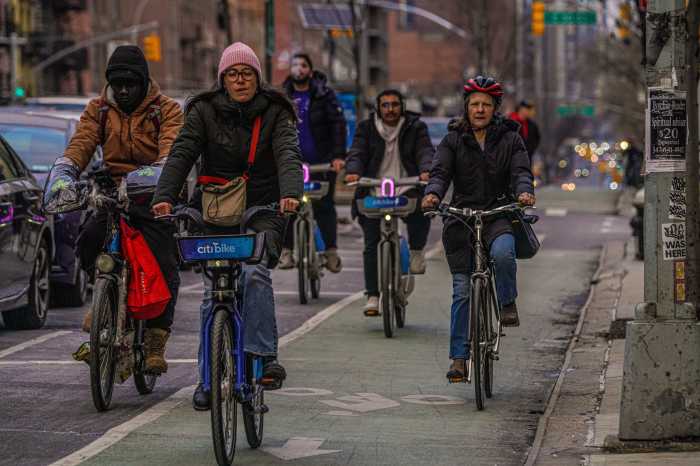As one might expect, there was more attention paid, media-wise, to the “expletive-filled rant” about gentrification in remarks Spike Lee made in Brooklyn the other day, than to the meat and potatoes of what had induced the filmmaker’s ire. Revisiting the issue in wake of the viral uproar that followed his comments, Lee said he had no problem with newcomers who were predominantly white moving into areas that were predominantly African American. “My problem,” he said, “is when you move in, have some respect for the history, for the culture.” Forget all the media overkill about what was or wasn’t colorfully expressed. That line from Lee (which was essentially reprising a point made in his earlier remarks) hit the thing squarely on the nose.
Gentrification in Brooklyn (as elsewhere) has enough of an actual and/or perceived downside that I would suspect there’s a pretty good portion of the (affected) citizenry from whom it gets a thumbs down. I doubt, though, that even those folk would be of the view that gentrification has nothing to commend it. Certainly, renters and would-be buyers, who get bludgeoned when real estate values spike after an influx of so-called hipsters into a neighborhood, would just as soon see a fast fade of the gentrification phenomenon. But what’s delivered to an area in improved services and perhaps aesthetic enhancements must have appeal for both the “invading” gentry and at least some longtime residents. We know from experience that this is no win-win situation, however, that the disrespect for culture and history that Lee railed against has been known to rear its head.
According to Lee, whose remarks were made at a Black History Month forum at Pratt Institute, the sudden, tragic passing of Michael Jackson in 2009 saw a pretty dramatic illustration of the mostly white newcomers in Fort Greene trampling on the sensibilities of the neighborhood’s African American population. When plans were hatched in the African American community for a celebration of Jackson’s life in the neighborhood park, Lee recounted, it was objection from newcomers that caused the event to be shifted to Prospect Park. As Lee tells it, the hipster set voiced concern about how much despoiling of the park would occur in a gathering of Jackson’s fans.
That report by Lee of cultures butting heads in a gentrified setting is by no means isolated. I was told, for example, about a white newcomer to one Brooklyn neighborhood twice making a trip to a Caribbean homeowner’s private backyard party last summer to complain about loud music. This was on a Saturday evening, and not at any god-awful post-midnight hour. And it’s fair to assume this would have been one of many similar scenarios to which others could attest.
It could very well be, too, that human nature running the spectrum as it does, an “I’m here now; the rules have changed” bravado is not uncommon in the never-ending movement of people into new spaces. And that it doesn’t necessarily have to involve a clash of races. I recall reading in the Park Slope newspaper years ago of the experience one resident had with a newly arrived transplant from Manhattan. The newcomer let the Slope veteran know, in a note stuck to the latter’s front door, that she found the chimes on said door most disturbing! This, as far as I could tell, appeared to be no difference of opinion driven by ethnic divide. Just unbelievable rudeness, the response to which should have been swift, straight, no kid gloves.
How much such elitist crap factors into the gentrification wave this city has seen since the closing decades of the 20th century, one couldn’t say. But it’s no major stretch to imagine former Manhattanites bringing some “attitude” when relocating to new digs in one of the pejoratively labeled “outer boroughs.” To residents of Brooklyn, who’ve been witness to the ongoing, expanding process of neighborhood transformation, it would hardly be surprising that, as far as encompassing neighborhoods that are magnets for gentrification, Brooklyn ranks among the country’s leaders. For some, certainly including Spike Lee, “leading” is in this sense clearly a dubious distinction.
The “outer borough” stigma isn’t easy to kill. But in time folks, particularly of a younger generation, began realizing that just across the river from the city’s nerve center lay excellent housing stock, easy access to public transportation and, if not already so, the potential for all else necessary for a living environment that strikes the fancy of devotees of chic.
Those assets, as well as whatever special enticements the city fathers, mayors or big-spending developers have layered on, have fueled the giddiness that seems now to have gentrification in firm grip. In the midst of which, the alarm sounded by Lee could be easily lost or ignored. It ought not be. Respect for neighborhood culture and history should be assured top priority consideration as this yen for gentrifying makes like a juggernaut turned loose in the sprawling city.
And are we prepared to have no place in the mix for compassion? To a greater or lesser extent, people get displaced by gentrification. Even with all it says about our regenerative capabilities, gentrification shouldn’t proceed indifferent to the “two cities” syndrome that got this mayor elected.


